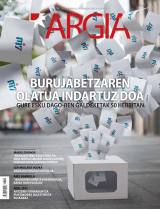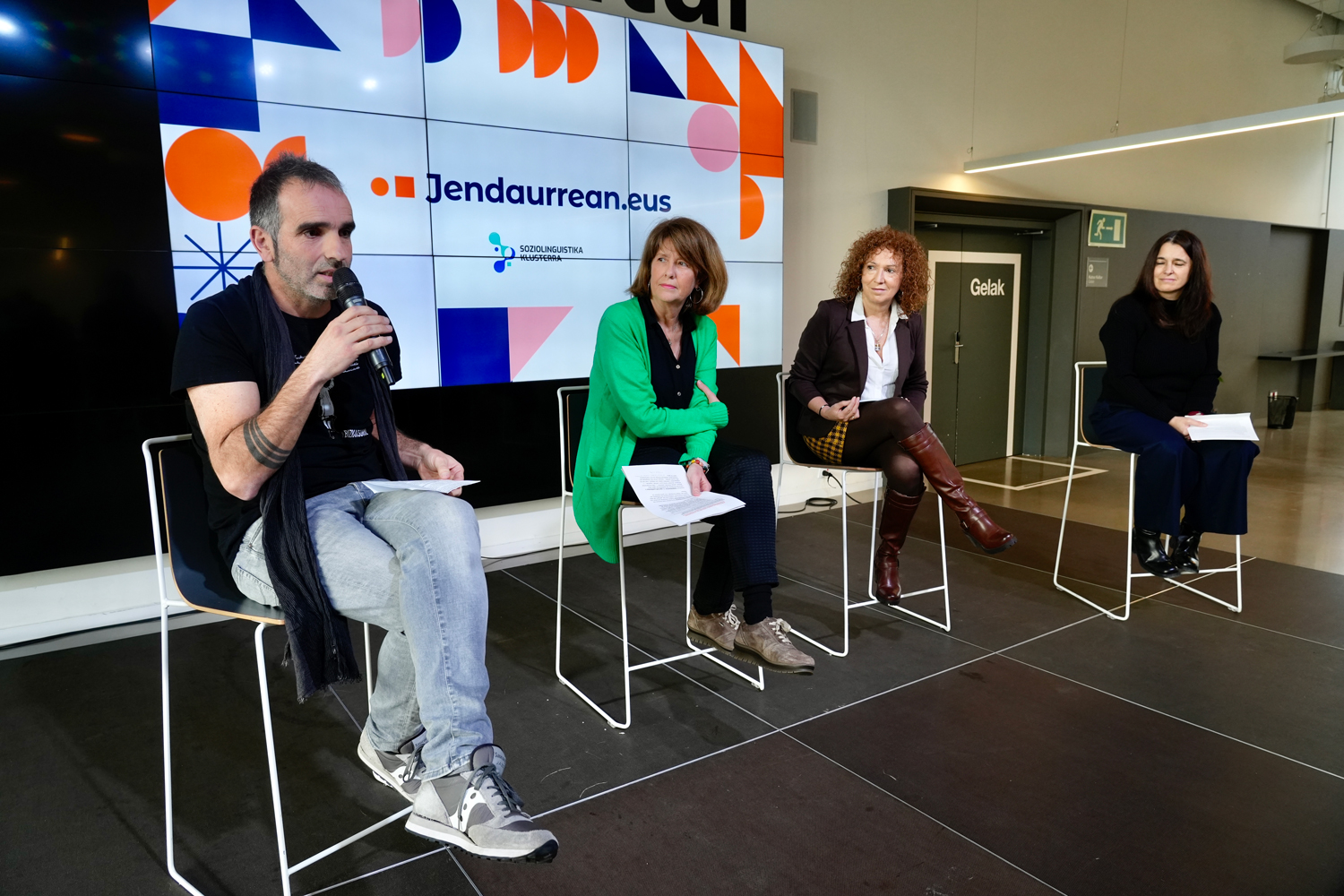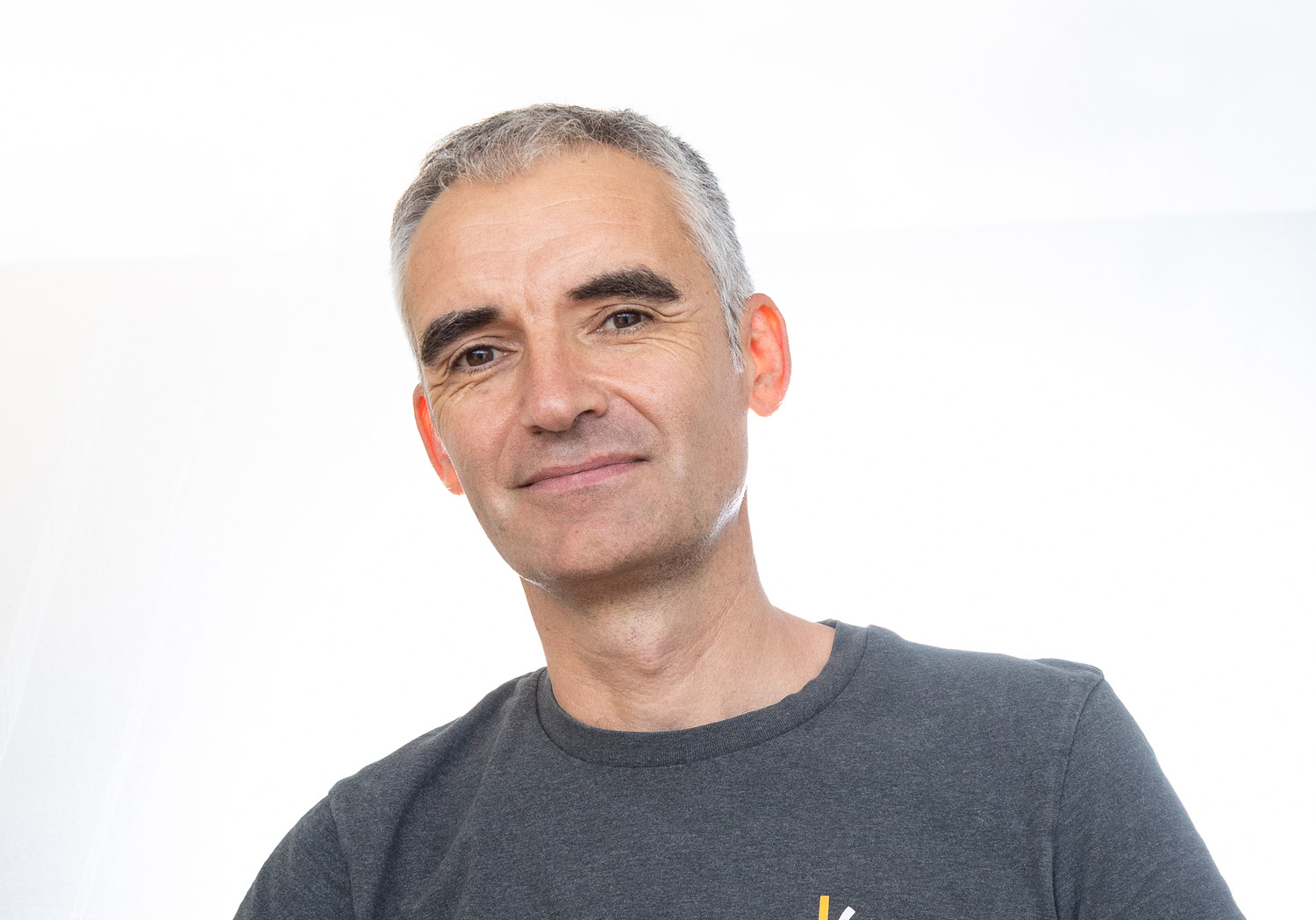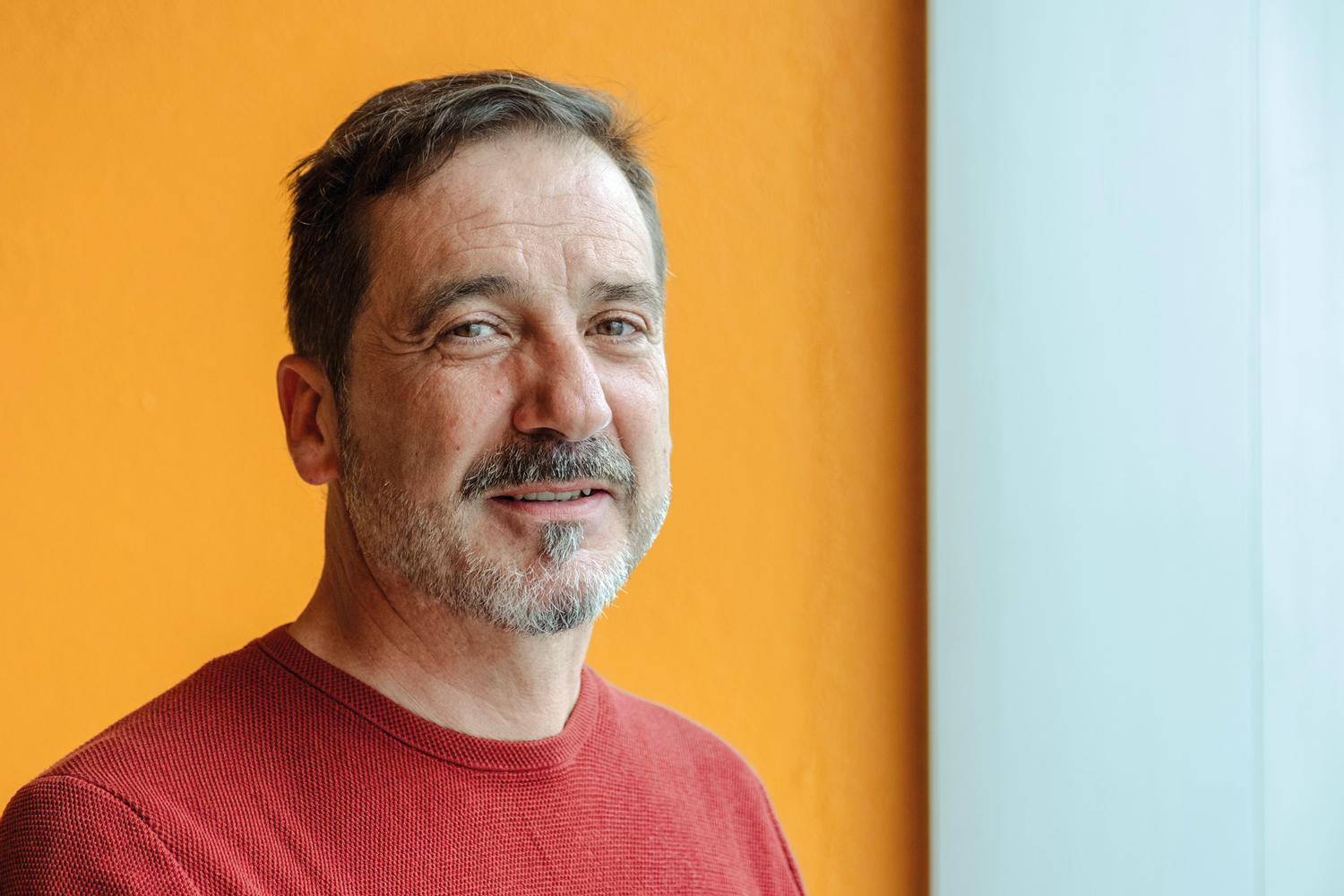Forgetting the shame, approaching the Basque
- In the AntzerkHizkuntza project, theatre is a means for boys and girls in primary and secondary schools to dare to speak in Basque. At Ave María School in Bilbao they have model B and have been practicing theatre for years.
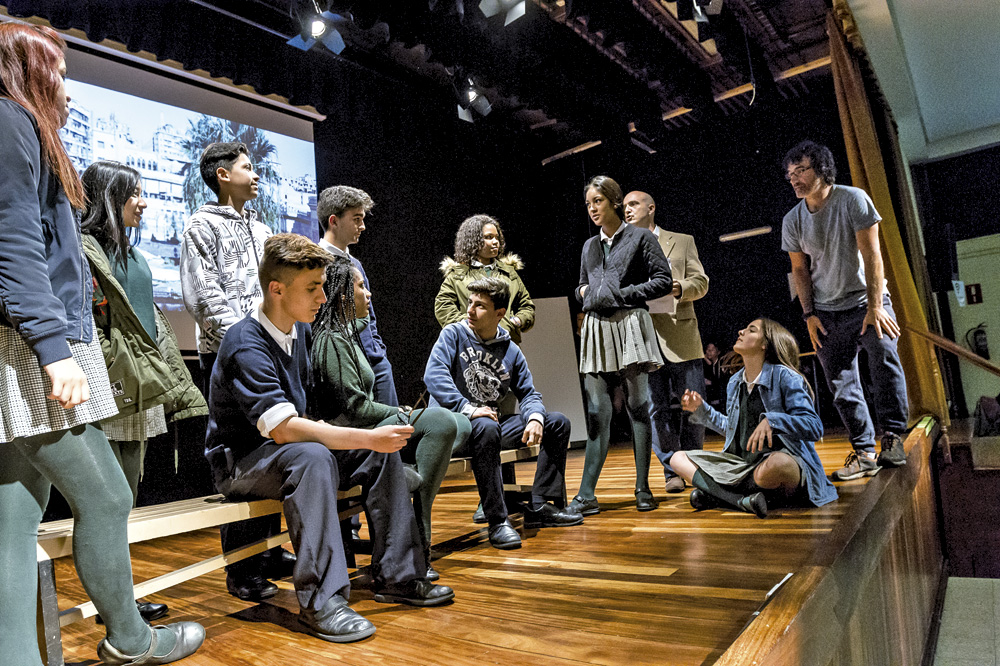
Today, many adolescents have a single relationship with Euskera in the classroom. Often, moreover, it is a one-way communication: faculty in Basque, Spanish students. Or, in silence, in their Basque clumsy, because they are more comfortable in Spanish. The AntzerkHizkuntza project helps young people overcome the complexes and influence playfully the use of Euskera. It is a method that satisfies not only the faculty, but also the students, if the end of the course surveys are taken into account.
Improving self-perception and strengthening self-confidence are the pillars of the Antzerk Language. As explained by Garikoitz Lasa, coordinator of the project, they work with 4th grade students from Primary to Secondary. At that age, young people judge themselves very rigorously, as integration into the group of friends is essential. The people who work more comfortably in Spanish prefer to leave the Basque Country, rather than being ridiculous in the face of the people around them.
Theater is an ideal instrument to overcome these complexes: besides linguistic competencies, one works self-control, one learns to value teamwork and one loses shame. Language is worked in class hours. Throughout the course, dedicating an hour a week, children have the mission of preparing a theater play. GARIKOITZ Lasa clearly states that theatre is not the goal, but the medium. “As everyone wants to be part of the work, they are very motivated and this leads them to take positions in favor of the Basque country. We want them to learn without realizing it, having a good time.”

In 2009, they started carrying out the school project in school. The head of the Berritzegune of the Txurdinaga Bilbaíno district told them it was a good project, but they usually work in English. “This Euskera technician is a passionate Euskaltzale and asked us – Lasa recalls – to keep the project in Euskera. And so we have maintained, this project is designed for linguistic normalization, and it will always be in Basque.” So far they have worked in Bizkaia (Barakaldo, Bilbao, Erandio, Igorre, Sopela…), but they are ready to extend to Álava and Gipuzkoa.
It is an effective initiative, since speaking well in Basque is not a condition for participation, but a desire to speak in Basque. “There are people who go to Spanish and we turn them to Euskera,” says Lasa, “we thank them for the effort, with a positive reinforcement, saying how well they are doing in Euskera.”
Lasa has recognized that, at least in grammar, they don't teach them much. “In AntzerkHizkuntza things can be said wrong,” it is to say in Basque. Lasa and her colleagues also do not use the Basque cult in the classroom, but a “provocative” language, with Spanish. “I don’t want to be a proper model, but a valid model.” Once the habit of speaking in Basque has been acquired, there will be time to improve.
Working on competences
How does Antzerk attract a student who so far has not wanted to speak in Basque? Motivation and involvement are the keys. The theater lets you spend an hour a week doing a fun activity instead of being upset in class. They all want to participate, and for that they need the Basque. In addition, it is an environment conducive to the forgetting of shame: “They can test themselves against others, but in a protected environment.”
.jpg)
There are notable differences between the students, at the Basque level and attitude: the same cannot be played with the timid and the noisy. The former help them to appear as they are, to feel the acceptance of the group, the latter teach them to respect what surrounds them. According to the coordinator, as the course progresses, there is a noticeable improvement in the cohesion of the group and in the confidence of all members. This positively influences the use of Euskera, but the benefits are not only linguistic, but also improve other useful aspects for students. The ability to work as a team, for example.
The adequacy to the characteristics of each group is essential for the achievement of the objectives. The work of the tutor is important; the members of AntzerkHizkuntza and the tutors have permanent communication. “At first, tutors tell us about the students. For example, if we are told that a student is shy, we can intervene individually.”
It is also a means to better know the students for the tutors and tutors. “We offer the teacher a tool, they have the opportunity to hear how the group performs orally, as many times they have only been able to work in writing by the Basque Country.”
The experience of the Ave María College
At the Ave María College in Bilbao, work has been done for some time in AntzerkHizkuntza. In the 3rd High School, in model B, Imanol Canales Arrasate teaches and highlights the difference observed in the attitude of students from beginning to end of the course. In centers like Ave María, these kinds of projects are of great help. “We have immigrants who arrive without knowing Euskera, in addition model B is ours and, therefore, the students have little contact with the language,” explained Canales. “I think the level of Euskera in the center is increasing year after year and AntzerkHizkuntza has to do.”

To reinforce the use of the Basque Country, they decided to include AntzerkHizkuntza in the programming, but they have also found more advantages for Ave María: “It is a breakthrough in group management and body expression,” says Canales. “Sometimes students forget the script and improvise it. That worries them, but the teachers take it with joy because they have improvised in Basque, that is a step forward!”
GARIKOITZ (PPE). — (DE) Mr President, I should like to begin by congratulating Mr Lasa on his excellent report. But overall, the experience is positive. “It’s wonderful when a teacher tells you that this or that student has changed for the better,” says Lasa. Students also feel satisfied. “At first many don’t want to do theater, but as the course progresses they get involved and in the end they tell us they’re proud of what they’ve done.” Listening to them is “June extra pay” for AntzerkHizkuntza.
The change in language habits is not easy, the key is in the adaptation of the objectives to the local reality, as Lasa stressed: “We don’t guarantee miracles, but they happen every year. We went unnoticed for very few students.”
Plazara, AEK, Uda Leku, Dindaia eta Ebete antolakundeak Baionan elkartu dira Famili'on egonaldi ibiltariaren lehen edizioa aurkezteko. Hizkuntza mailaren arabera eskaintza bat edo beste egongo da eta haur zein gurasoentzat izango da udaberrian.
I think it will have to do with the hangover of the profession, but I have to acknowledge that I look at the linguistic landscape of the places I visit. Signs that stick on the walls, hanging from streetlights, billboards, and supports that appear in shops or companies (signs,... [+]









